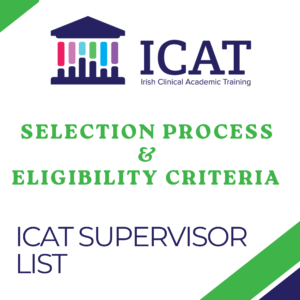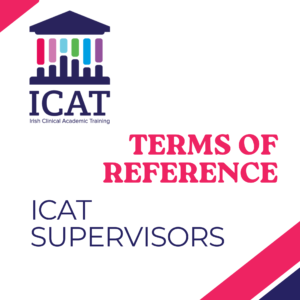Supervisor Database Search
Guidance for ICAT Supervisors
Supervisor Database
Full NameProfessor Jonathan Hourihane
Paediatrics and Child Health
Royal College of Surgeons in Ireland
Webpage:rcsi.com
Email hidden; Javascript is required.
- infectious disease and the immune system
- epidemiology/population health research
- one health
- nutrition
- global health/inclusion health
- clinical trials
- Paediatrics
- Dermatology
- Immunology
My group explores early life influences on allergic outcomes such as food allergy and eczema. We have designed and delivered on intervention trials to prevent eczema and with ICAT have uniquely studied neurophysiological aspects of eczema-related sleep disturbance. We are at the international forefront of influencing early weaning patterns and dietary advancement therapies for children with food allergy. Our human infant microbiome work in the CORAL pandemic cohort has yielded unique insights in what seem to be key aspects of allergy-related metagenomic and metabolomic features. There is scope to examine these in intervention studies using animal models of gut health and allergy.
In 2025, we are embarking on a funded, 1000-baby birth cohort study - FLORAL - to examine links between infant allergy and neurodevelopment and the gut microbiome. This study aims to repeat the globally unique CORAL study of infants born in the first months of COVID-19 lockdown in 2020, who had very different health outcomes and microbiome profiles than historic controls. We will be examining their neurodevelopment and allergy status at 6, 12 and 24m. We will also be reviewing the CORAL cohort when they are 5 years old to examine if the pandemic related changes have persisted or have influenced rates of later onset allergic conditions such as asthma, using novel research techniques. We are in advanced development of projects looking at the microbiome in inclusion health and we are a leading site in an international clinical trial in epicutaneous immunotherapy in food allergy.

